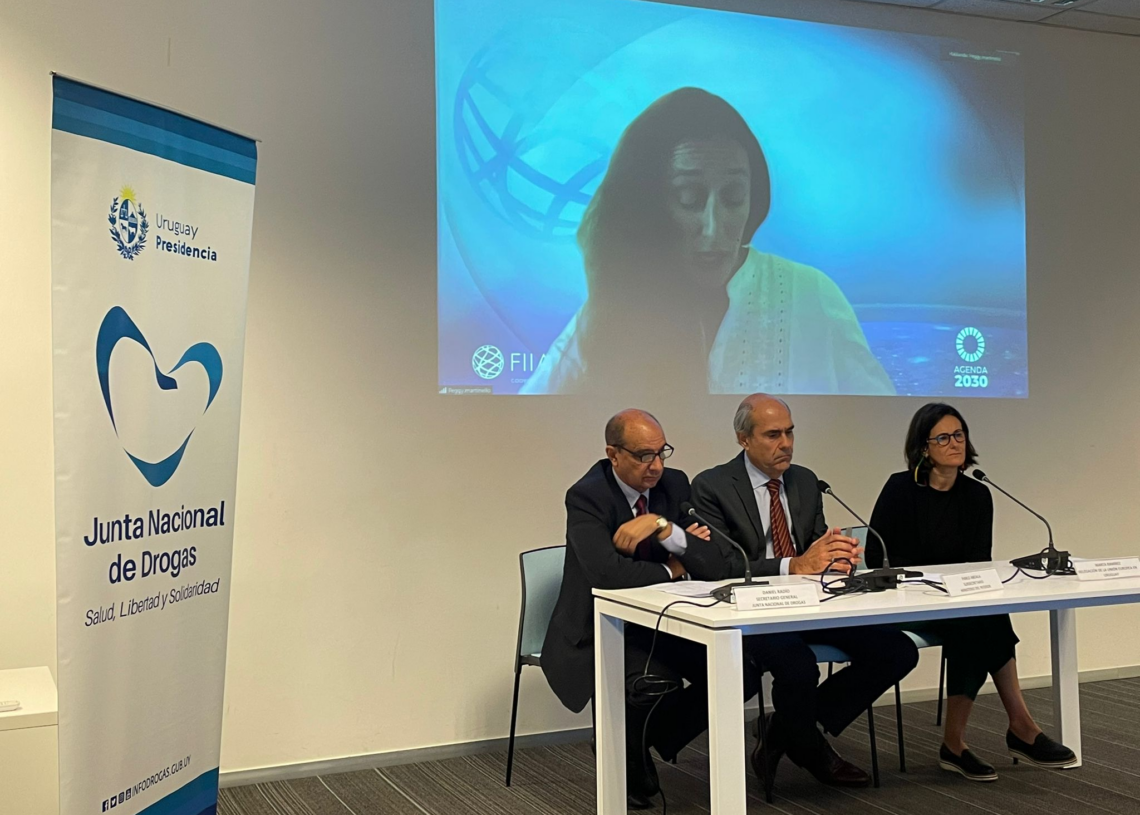In the framework of the COPOLAD III FIIAPP Programme’s support to the design of the National Plan to address the problematic use of drugs in persons subject to criminal sanctions in Uruguay, the Guide “Addressing the Problematic Use of Drugs in Persons Deprived of Liberty” was published in June 2024, developed collaboratively by the National Drug Board (Junta Nacional de Drogas – JND), the State Health Services Administration through the Comprehensive Care Service for Persons Deprived of Liberty (SAI-PPL), the National Rehabilitation Institute (INR) and the Ministry of Social Development (MIDES) through the National Directorate of Support for the Released (DINALI) with the support of the european cooperation program COPOLAD III. It is a publication that supports the treatment system for people deprived of their liberty, as part of the drug policy focused on the health approach promoted by the Government of Uruguay.
The methodology of the device focuses on the systematisation and organisation of treatment for people with problematic drug use within the prison system, in accordance with the National Drug Strategy 2021-2025. It seeks to establish clear intervention parameters based on good clinical practices and the satisfaction of the people deprived of liberty who go through the device. It focuses on improving the quality of care and treatment through a systematic and constant evaluation of the programme and has been developed with the technical support and funding to edit and update by the the COPOLAD III Programme. Uruguay and UE coordinates efforts on harm reduction strategies and the operationalisation of a rights-based approach for drug users.
Scope
It is national in scope, anchored in the Penitentiary Units of the National Rehabilitation Institute (INR), as a tool to improve the health and quality of life of people in prison contexts, through a comprehensive approach, based on human rights, gender and intersections.
Approaches
It is designed in compliance with international recommendations and national guidelines. In order to provide a useful tool for the treatment of problematic drug use for people deprived of liberty. It recognises drug use as a complex, diverse and dynamic concept, which requires a multidimensional and multidisciplinary approach to intervention. These elements are essential for the design and implementation of public policies that have a positive impact on the health of the prison population and on the process of reforming the prison system.
In the coming months, COPOLAD III will continue to support the process of creating a National Plan to address problematic drug use, which will be presented by the end of 2024.
(Only in Spanish)






